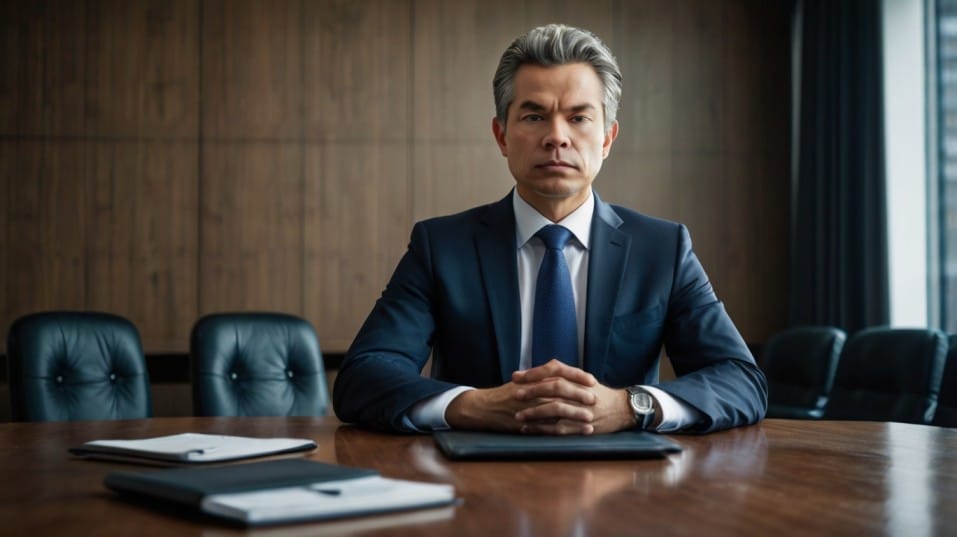Why Meditation Helps Leaders Earn More Respect
Meditation helps leaders earn deeper respect by boosting presence, emotional control, and clarity—no fluff, just results. Start now.

Ever notice how the most respected leaders aren’t always the loudest or most charismatic? It’s something else—something steadier.
In high-pressure environments, the real edge isn’t what you know or how you present. It’s how grounded you are when things go sideways.
Meditation sharpens that edge. Not as a soft skill, but as a performance tool that builds real presence. Because in leadership, calm isn’t weakness. It’s influence.
Leadership Isn’t Earned in Strategy Sessions
You can’t spreadsheet your way into respect.
Leadership isn’t built solely through vision decks, roadmaps, or quarterly wins. It’s built in the micro-moments—the way you respond to tension, how you handle failure, the tone you set without saying a word.
Your team isn’t just watching your decisions. They’re watching your nervous system. Do you escalate when pressure hits? Do you dominate when silence stretches? Do you interrupt when you feel unseen?
These reactions erode respect, even if your intentions are good. Meditation helps you notice them, regulate them, and—over time—replace them with presence that actually builds trust.
The shift is subtle but powerful. You're not just “managing well.” You become someone others feel better around. Someone who holds the room together when it’s falling apart. That’s where respect begins.
Presence: The Unspoken Language of Power
Most leadership advice focuses on what to do—how to delegate, communicate, optimize. But respect isn’t just behavior. It’s perception. And perception is shaped by presence.
People feel it when you’re fully there. When your attention isn’t split between them and your inbox. When you’re not planning your rebuttal while they’re still mid-sentence. When you’re not performing leadership—but actually leading.
Meditation teaches that presence. It trains you to sit with discomfort without escaping it. To listen without immediately reacting. To stay grounded when your ego wants to flinch, fight, or prove.
It’s not about saying the perfect thing. It’s about being the kind of person who doesn’t need to. That’s power—and people respect it.

The Neuroscience of Authority
This isn’t just philosophical. It’s biological. Regular meditation physically changes the brain.
Studies from Harvard and Massachusetts General Hospital show that even eight weeks of mindfulness practice thickens the prefrontal cortex—the area linked to decision-making, emotional regulation, and self-awareness—while shrinking the amygdala, which governs fear and impulsivity.
Translation: you become less reactive, more centered, and more strategic under stress. You interrupt less. You lash out less. You stop projecting your internal chaos onto everyone else.
Instead, you lead from clarity. And clarity earns respect in a way charisma can’t. Because when things go sideways, your team doesn’t want fireworks. They want focus. If you can bring that, your influence compounds—fast.
Regulate Yourself, Influence Everyone
Leadership is emotional labor. You're not just setting goals—you're managing energy. The mood of the leader often becomes the mood of the team.
If you’re anxious, they get anxious. If you're checked out, they disengage. If you're reactive, they get defensive.
But if you're composed? People relax. They step up. They feel safer to speak, to risk, to contribute. That’s not just emotional intelligence—it’s strategy.
Meditation gives you that leverage. It helps you notice emotional triggers before they hijack your behavior. You don’t suppress what you're feeling—you just don’t act from it.
The difference between “I’m angry” and “I’m being driven by anger” is massive. One runs the meeting. The other ruins it.
Self-regulation isn’t soft. It’s a form of influence. And it might be the most underrated leadership skill in the game.
Listening as a Competitive Advantage
Most people don’t listen to understand. They listen to reply. Or defend. Or fix. Great leaders do it differently. They listen with presence, without agenda. Not to manipulate the moment, but to actually meet it.
This kind of listening can’t be faked—and it can’t be learned in a workshop. It has to be trained. Meditation builds that muscle.
It teaches you to notice your mental chatter and let it pass without grabbing it. Over time, this discipline spills into conversations. You become less distracted, less judgmental, more curious. And people feel that.
When people feel heard, they open up. They stop posturing. They share more. And they begin to see you not just as a leader, but as someone who gets it. That builds trust—and trust deepens respect.
Stress Isn’t the Enemy—Reactivity Is
There’s no such thing as a stress-free leadership role. But there is such a thing as a reactive leader—and those are the ones people stop trusting. Meditation doesn’t remove the chaos. It trains your brain to move through it differently.
Instead of impulsive Slack messages, you pause. Instead of raising your voice, you breathe. Instead of trying to control everything, you stay with the discomfort long enough to see the bigger move.
That’s what earns respect—not always having the answer, but having the clarity to find it.
According to the University of Wisconsin, long-term meditators show lower levels of cortisol (the stress hormone) and increased activity in the brain regions associated with emotional stability. That’s not just a win for your health. It’s a win for your leadership.
Confidence Without the Noise
There’s a confidence that shouts. And there’s a confidence that doesn’t have to. The first usually masks insecurity. The second comes from deep self-awareness—the kind meditation develops over time.
You start seeing your patterns: the need to interrupt, to control, to prove you’re right. And once you see them, you can interrupt them. That gives you choice. That gives you freedom.
Over time, you stop performing. You start responding. You speak more clearly. You push back without hostility. You admit when you’re wrong—because you don’t need to protect a fragile ego anymore.
That kind of confidence doesn’t demand respect. It draws it out of people.
This Is Mental Training, Not Mysticism
Let’s set the record straight: meditation isn’t about mantras or incense or becoming some enlightened monk on a hilltop.
It’s about training your attention. Just like you train your body to lift more weight or your team to handle more complexity, you train your mind to hold more tension without collapsing.
And that’s the kind of edge leaders pay thousands to fake—with consultants, branding, positioning.
Meditation doesn’t make you nicer. It makes you clearer. Less scattered. More decisive. Harder to provoke. Easier to trust. In a world flooded with noise, clarity is rare. And rare is respected.
Final Thoughts
Meditation won’t hand you a promotion or build your team for you. But it will make you the kind of leader people want to follow—not because they have to, but because they believe in how you lead.
You’ll stop chasing validation. You’ll stop reacting to everything. You’ll start showing up with the kind of steadiness that makes people feel like, “Yeah, they’ve got this.” And that’s respect.
Start now. You don’t need a perfect setup or a 30-minute practice. You need one breath. One pause. One moment to stop reacting and start leading.
Do that enough times, and your leadership won’t just improve—it’ll evolve. The edge you’re chasing? You already have it. Train it.




